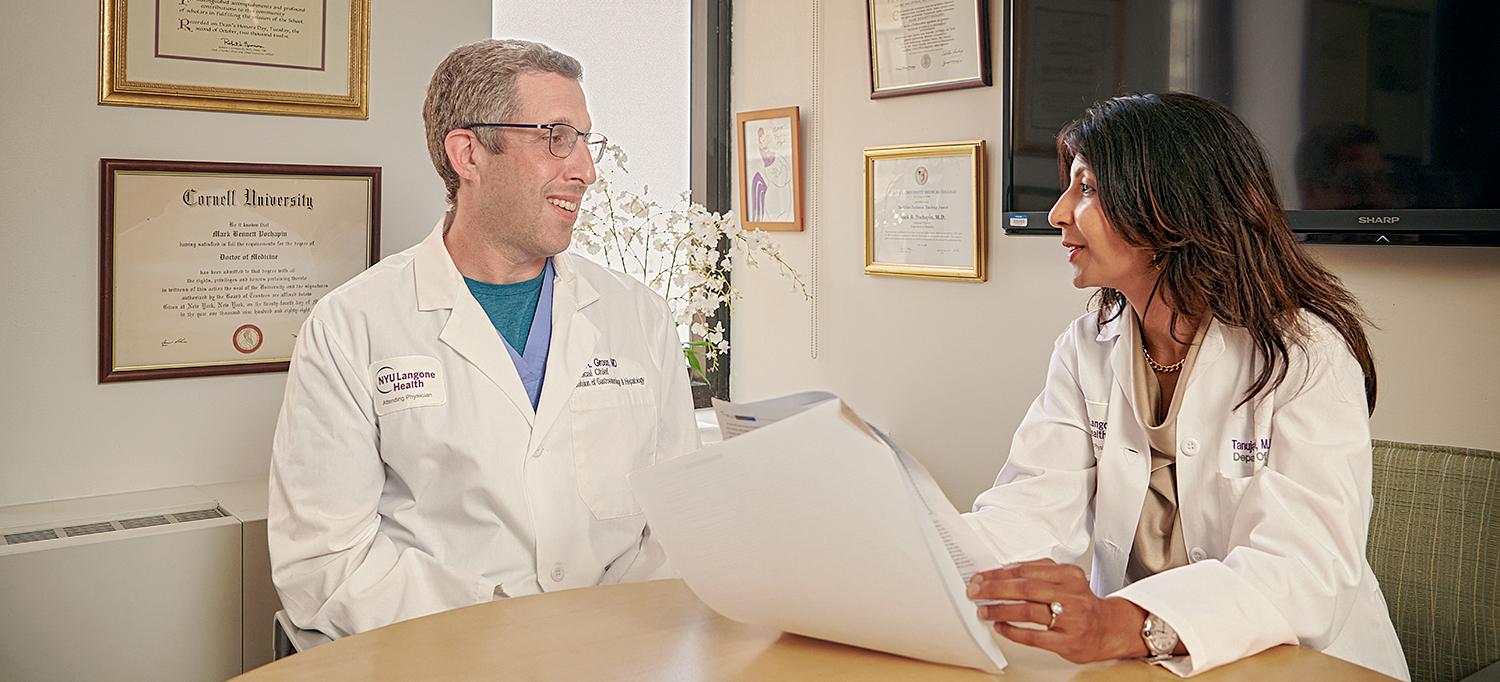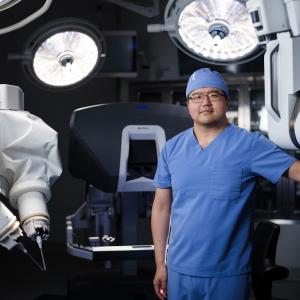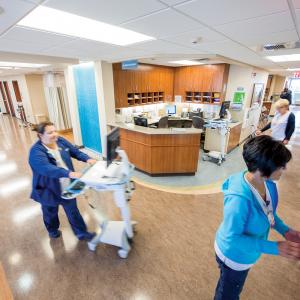
The collaboration between gastroenterologist Dr. Seth A. Gross and surgeon Dr. Tanuja Damani enabled the team to provide effective care for Jeff.
Photo: Joe Carrotta
It was late 2020, and Jeff had reached the end of his rope. For the last six years he had been overwhelmed by acid reflux and stretches of time when he couldn’t keep down food. Previous doctors had also diagnosed severe iron-deficiency anemia, but could not pinpoint a cause. During the last couple of months the symptoms had worsened exponentially. “I would just vomit continuously day and night,” he says. The resulting 30-pound weight loss left Jeff too weak to carry the camera equipment he relied on for his living as a photographer.
Enter the comprehensive care team at NYU Langone’s Center for Esophageal Health, where Jeff sought help. He first saw gastroenterologist Seth A. Gross, MD, who determined Jeff’s symptoms indicated something more than typical acid reflux. He performed an endoscopy, in which a flexible tube with a camera at its tip is passed through the mouth and down into the esophagus. The procedure revealed a paraesophageal hernia, which occurs when part of the stomach bulges through the diaphragm and into the chest cavity. A CT scan revealed a hernia so large that most of Jeff’s stomach was in his chest cavity, rather than in the abdominal cavity.
The diagnosis explained Jeff’s symptoms, including the anemia. Tiny erosions in the lining of the stomach were caused by being pinched at the opening of the diaphragm. These erosions can cause bleeding that is not visible to the patient or the doctor, and in turn, severe anemia.
Dr. Gross had discovered the source of Jeff’s distressing symptoms. For the solution, he consulted his colleague and surgical director of the Center for Esophageal Health, Tanuja Damani, MD.
“She came in and said, ‘This is the key to everything you are experiencing. This is why you can’t keep food down. This is why you’re anemic. I want to operate as soon as I can,’” says Jeff. “I told her, let’s do it now.”
VIDEO: Jeff, 69, came to the Center for Esophageal Health for help with his disabling symptoms.
A few weeks later, Dr. Damani performed a minimally invasive robotic procedure to bring Jeff’s stomach back into the abdominal cavity. She then cinched the opening of the diaphragm, which had widened significantly, and reinforced it with an absorbable mesh, which strengthens the closure and prevents the hernia from recurring. Next, Dr. Damani performed an anti-reflux operation, also called fundoplication, to prevent Jeff from experiencing gastroesophageal reflux.
Jeff went home less than 48 hours after the 2.5-hour surgery. “I felt better as soon as I woke up in the hospital,” says Jeff. “It was like night and day.”
“Dr. Damani and Dr. Gross truly gave me my life back.”—Jeff, Age 69
Jeff is effusive about the care he received. “I can’t say enough about how efficient, compassionate, kind, and understanding Dr. Damani and her team were—both in the run-up to the surgery and then during and after the surgery,” he says.
Today, Jeff can enjoy food again without troubling symptoms or the constant worry that symptoms will occur. “It’s hard to put into words how much it impacted my life. I told Dr. Damani, being able to have a glass of orange juice or pizza or Indian food—it’s like having my life back.”

